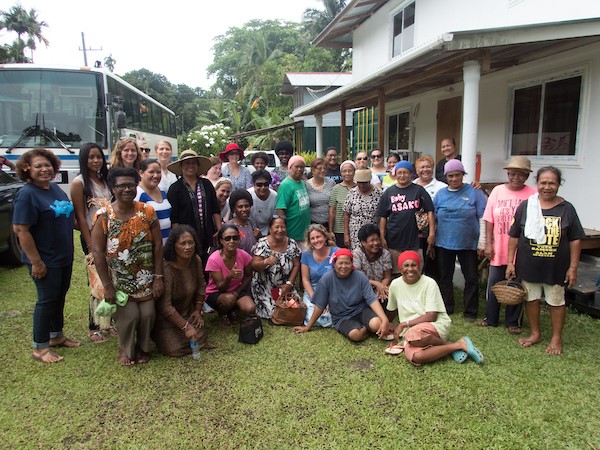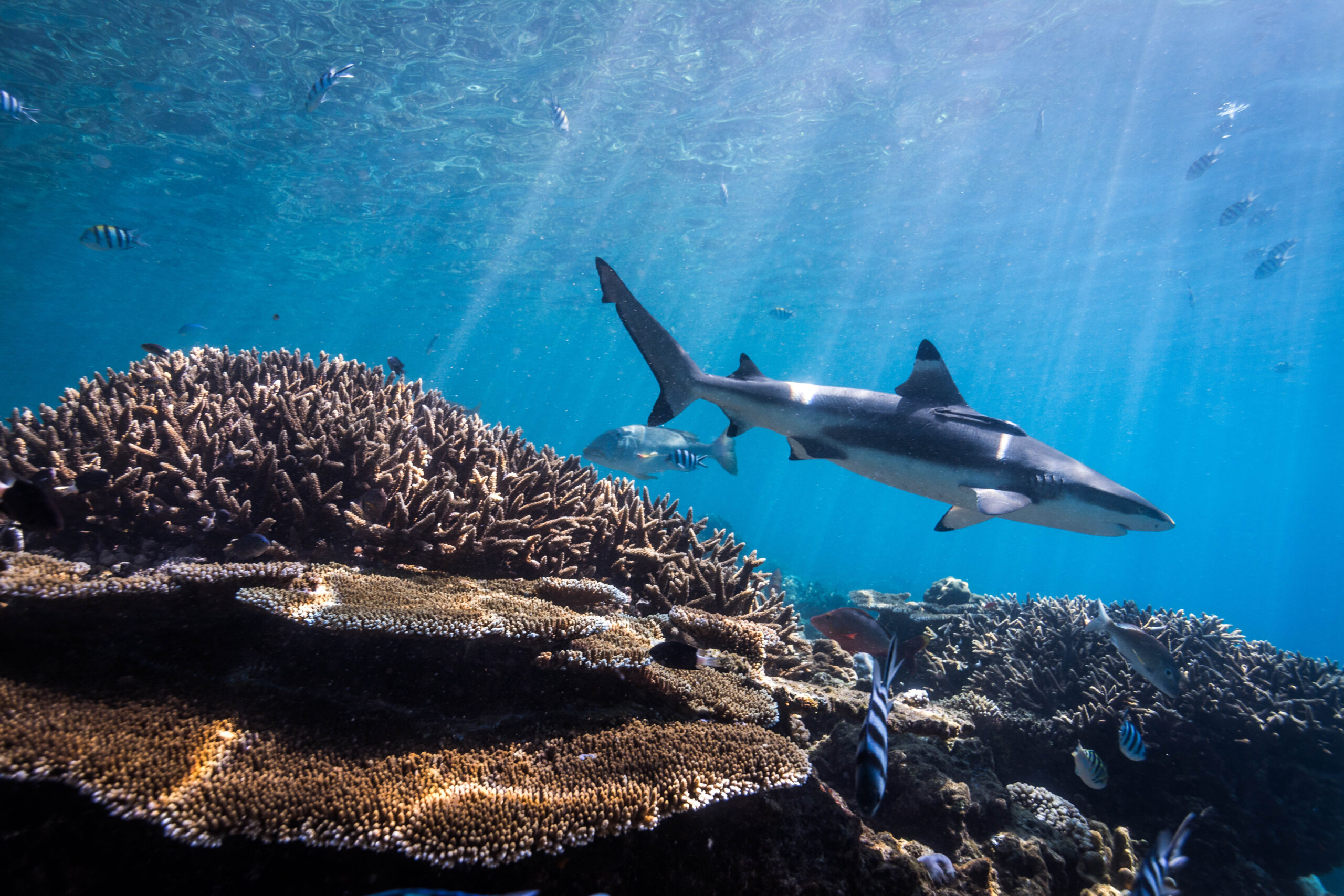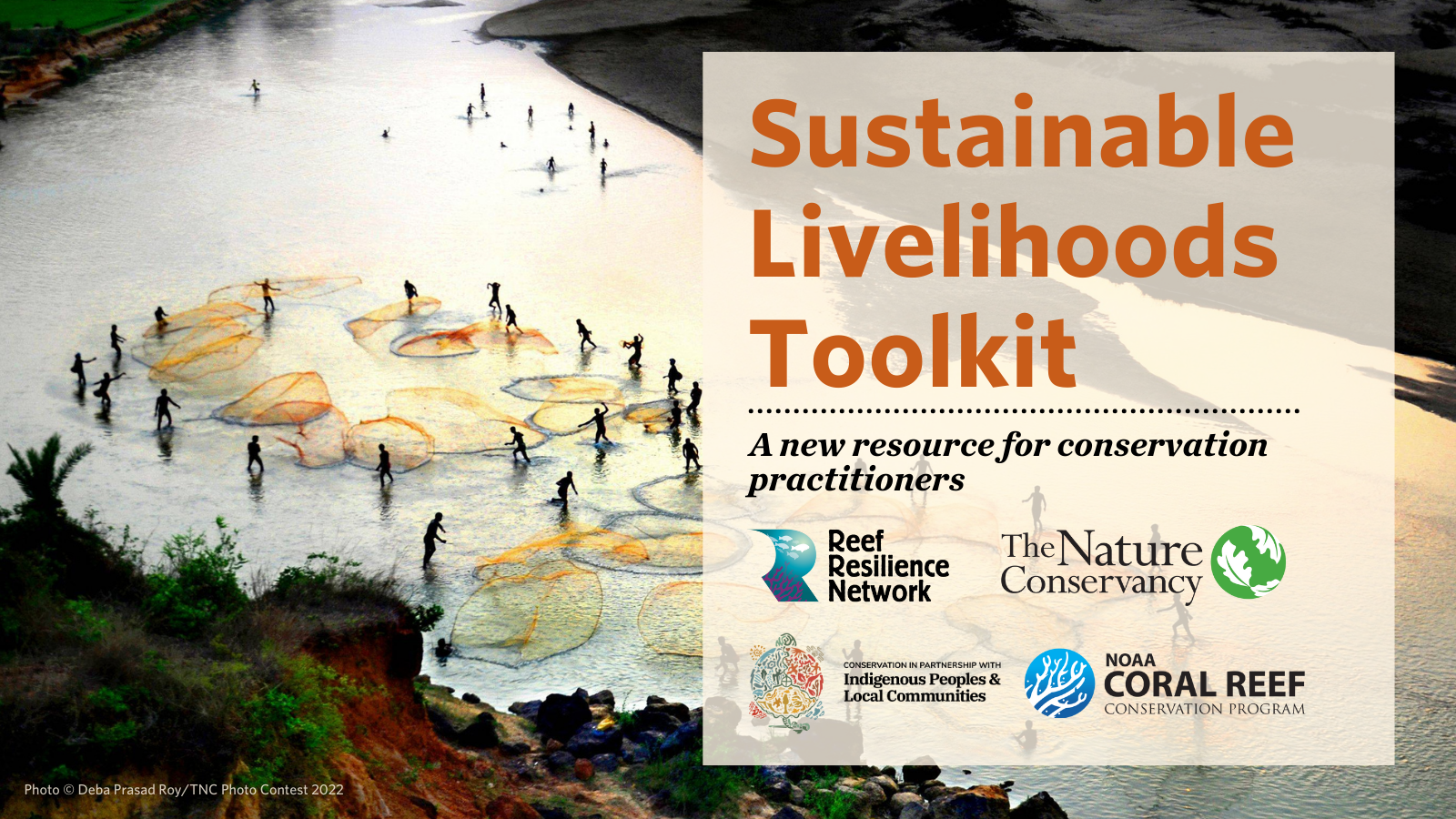Last March, The Nature Conservancy brought together 25 women from Papua New Guinea, Palau, the Marshall Islands, Pohnpei, Chuuk, Yap, Kosrae, the U.K., and the U.S. to talk about climate change and how it can affect men, women, and children in different ways. With more than a decade of experience working on climate adaptation in the region, Dr. Lizzie McLeod thought she had a handle on the impacts – e.g., coastal flooding and erosion from sea-level rise and storm surge, human migration, changes in rainfall that affect food and water security, and changes in ocean temperature that can drive coral bleaching. What really struck Dr. McLeod after listening to stories from the women across the region were the climate impacts that are not often spoken about – such as young girls experiencing violence when they have to walk farther to get water during drought, or when women are unable to cook and wash clothes due to water shortages and become victims of domestic abuse, or children who are unable to attend school because there is not enough water to flush toilets and prepare lunches.
Through this learning exchange, Dr. McLeod realized the power of discussions where women are free to speak openly about their concerns and actions needed to address the tremendous challenges presented by climate change. She is inspired by the incredible leadership these women demonstrate to reduce the risks of climate change and to help sustain their families and communities.
Inspired by Dr. McLeod and the women who participated in this learning exchange, the Reef Resilience Network wanted to share their stories, leadership, and recommendations to decision makers to catalyze new and/or refine existing policies that address the needs of women more fully. We asked Ms. Berna Gorong, a workshop participant from Yap, some questions about the learning exchange.
Reef Resilience Network (RRN): You recently participated in a learning exchange in Palau for women from across the Pacific Islands to share their experiences coping with climate impacts and leading innovative solutions. Can you share some of these nature-based solutions?
Ms. Gorong: Some solutions that were shared at the Palau workshop included:
- replanting mangrove trees in areas that have died back or been disturbed to help reduce flooding and erosion from the combination of storm impacts and sea-level rise;
- replanting taro in less vulnerable areas, moving it from areas that have been threatened by inundation and saltwater intrusion during storm surges or higher tides; and
- planting nipa palm in the flooded taro patches, so women can use nipa plant leaves for thatched roofing of traditional structures.
RRN: Can you talk about the importance of solutions that are developed directly by communities themselves?
Ms. Gorong: It is important that communities themselves are involved directly in developing solutions to address the issues and challenges they face. This is part of being a resilient and adaptive community. If you are just being told what is the best or right solution for you without fully understanding the rationale, it does not build the adaptive and intuitive capacity of communities which makes them resilient to change. Island communities had survived long ago by constantly observing their environment and learning how to best adapt and overcome obstacles.
RRN: Were there any surprises from the Palau learning exchange?
Ms. Gorong: For me, the surprise at the Palau learning exchange was hearing the perspective from the western women and the comparisons between the rights of women in the western world and the island communities. It was quite enlightening for me and made me even more proud that I was born and raised in my island culture and traditions that empower me as a woman with a clearly defined role that builds up my family and community.
RRN: What advice would you give to a marine manager who wants to more effectively engage with women and vulnerable groups in responding to climate change?
Ms. Gorong: My advice is to be able to listen with the “right” ear, especially if you’re engaging with a group that is not of your cultural landscape. A lot of times when we do not understand the cultural landscape of an area, it is easy to misinterpret things. Listening, understanding, and speaking English for a person who normally interacts in their non-English mother tongue is a challenge. Even myself who speaks English as a second language and mainly interacts in English for my professional life and living in an island community, it takes me a while to understand English when speaking with someone for the first time because I realize that my literal understanding may not be the main focus of the discussion. So that’s what I mean by listening with the “right” ear. Be cognizant of the presence of the cultural perspective and authentic in your questions and engagements.
You can read more about this work here and read a summary of the new article on raising women’s voices to inform climate adaptation polices. This work was supported by the Nature Conservancy and the German Federal Ministry for the Environment, Nature Conservation and Nuclear Safety (BMUB) – International Climate Initiative (IKI).



